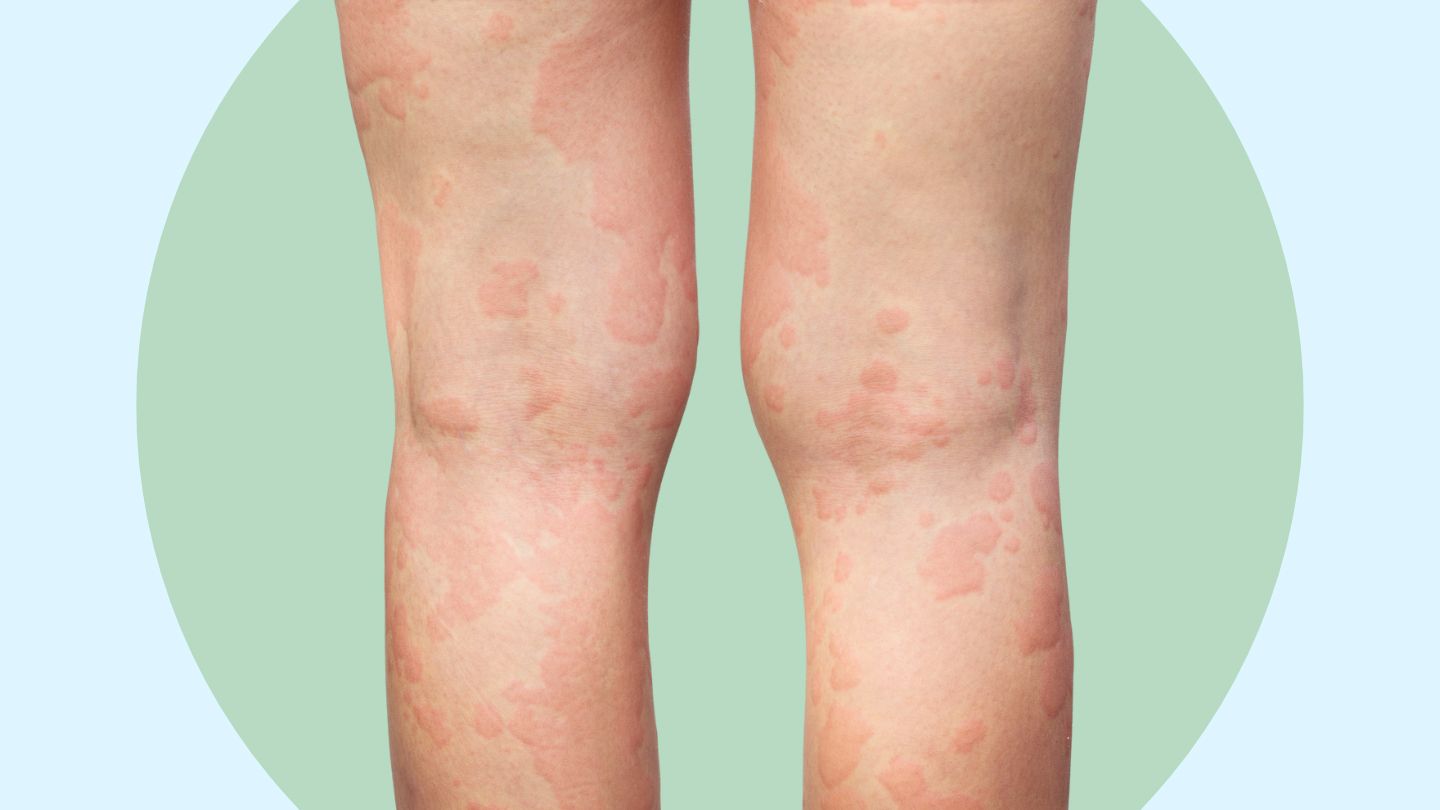One of the most frustrating symptoms of chronic spontaneous urticaria (CSU) is undoubtedly the itchy hives that seemingly come out of nowhere.
“It’s called spontaneous because there’s nothing you’re doing to cause the hives to appear,” says Allen Kaplan, MD, a clinical professor of medicine at the Medical University of South Carolina in Charleston. “You could go to bed feeling fine, with no rash whatsoever, and wake up covered with hives.”
Hives from CSU usually last 12 to 24 hours at a time. In the meantime, there are ways to ease the itch. Keep reading to learn how.
What to Do When You Can’t Stop Scratching
With proper treatment from an allergist, dermatologist, or immunologist, plus the tips below, the itchy hives often dissipate.
1. Talk to Your Doctor About Medication
The first-choice treatment for CSU is a daily dose of an over-the-counter or prescription second-generation antihistamine. First-generation antihistamines are not recommended, because they can cause drowsiness and easily interact with other medications, says Dr. Kaplan.
If antihistamines don’t take away the itch, says Kaplan, other options include omalizumab, an anti-inflammatory medication that’s delivered by injection every four weeks, and dupilumab, a biologic that helps halt inflammation.
Sometimes, an immunosuppressant medication called cyclosporine is prescribed off label for CSU, but it’s only used when other treatments have failed, says Kaplan. (This medication is used to help people with organ transplants avoid organ rejection.) It’s not a top choice, because it can raise blood pressure levels and interfere with kidney function.
2. Apply a Cool Compress to Your Skin
Run a clean washcloth under cold water, wring out the excess water, and place the cloth on your itchy skin. Leave it in place for about 10 to 20 minutes. This should help lower inflammation in the area, easing the itch. (But don’t do this if cold seems to trigger hives for you.)
3. Don’t Scratch Your Skin
As tempting as it is, try not to scratch the itchy area. It may only cause more irritation, which can worsen the outbreak. Some doctors recommend trimming your fingernails regularly, too, since short nails are less likely to harbor infection-causing bacteria.
4. Rethink Using Pain Relievers
“Generally, it’s best to avoid NSAIDS, but if you know taking it does not affect the urticaria, it’s okay to use,” says Kaplan. If you have CSU along with another condition that causes chronic or occasional pain, ask your doctor about the best pain-relief options for you. For example, acetaminophen should not worsen hives, says Kaplan.
5. Consider Dietary Triggers
CSU isn’t usually caused by diet. But if you get hives after eating specific foods, talk to your doctor about the possibility of food allergies.
6. Try to Reduce Stress
That said, Kaplan says it often goes the other way around: Hives often cause stress. “Nothing relieves the stress better than controlling the hives,” he says. If stress about hives is interfering with your ability to work or sleep, consider mental health counseling.
The Takeaway
- Chronic spontaneous urticaria can trigger an intense itch that interferes with your quality of life.
- Taking both over-the-counter and prescription medications can help keep hives at bay.
- Other strategies, such as avoiding NSAIDs and lowering stress levels, can also help ease the itch.
Read the full article here




